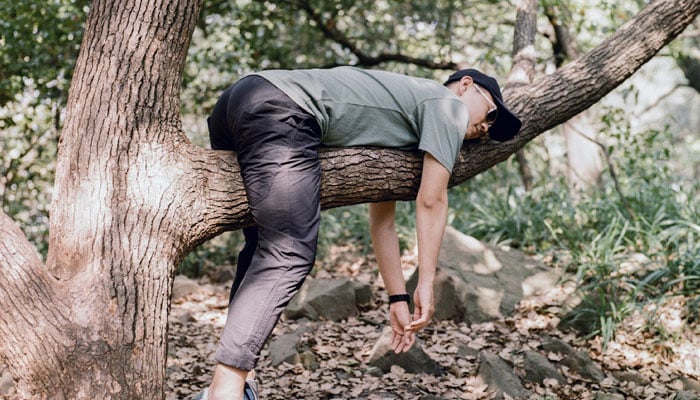Struggling to stay active? Try tweaking your sleep schedule
New study reveals surprising correlation between bedtimes and subsequent physical activity levels
July 01, 2025

A groundbreaking new study from Monash University in Australia suggests that hitting the hay earlier could be a simple yet effective strategy for boosting your daily exercise minutes.
While not a definitive cause-and-effect, the research, published in PNAS, reveals a significant correlation between earlier bedtimes and increased physical activity the following day.
The study, led by Monash University researchers, leveraged an enormous dataset from wearables worn by 19,963 individuals over an entire year, providing nearly six million "night-and-day reference points" on sleep patterns and activity levels, Science Alert reported.
This vast amount of data led researchers to observe the connection between earlier bedtimes and increased physical activity, offering compelling insights for public health initiatives.
"These insights carry meaningful implications for public health," said psychologist Josh Leota from Monash University. "Rather than just promoting sleep and physical activity independently, health campaigns could encourage earlier bedtimes to naturally foster more active lifestyles."
The findings indicated a clear trend: an earlier bedtime consistently aligned with more moderate-to-vigorous exercise the next day.
For instance, participants who went to bed at 9pm logged an average of 30 minutes more exercise than those who retired at 1am, and 15 minutes more than those with an 11pm bedtime (which was the average across all participants).
Sleep duration also played a role, though with a nuanced outcome.
Those averaging five hours of sleep logged 41.5 more minutes of exercise compared to those averaging nine hours. However, the researchers caution that the benefits of increased exercise in this scenario might be counteracted by the negative effects of sleep deprivation.
Perhaps the most intriguing finding was that individuals who went to bed earlier than their usual time, while still maintaining their typical sleep duration, tended to achieve personal bests in activity time the subsequent day.
The researchers propose several explanations for these observations.
Later bedtimes might be indicative of generally busier individuals, and an earlier bedtime could reduce the likelihood of oversleeping or repeatedly hitting the snooze button – though specific wake-up times were not part of the study's data.
"Standard 9-to-5 routines can clash with the natural sleep preferences of evening types, leading to social jetlag, poorer sleep quality, and increased daytime sleepiness – which can all reduce motivation and opportunity for physical activity the next day," Leota explained.
The study meticulously controlled for factors such as age, body mass index, and whether the day was a weekday or weekend.
Furthermore, a similar, albeit less pronounced, relationship was observed in a second, more diverse dataset of 5,898 individuals, bolstering the initial results.
While this study establishes a strong correlation, it's important to note that it doesn't definitively prove causation. Other underlying factors, such as an individual's natural predisposition as a "night owl," could contribute to both later sleep and lower exercise levels. Further research is needed to fully disentangle these variables.
"Sleep and physical activity are both critical to health, but until now we didn't fully grasp how intricately connected they are in everyday life," said psychologist Elise Facer-Childs, also from Monash University.
"Our findings are consistent across different populations, and show that if you can get to sleep earlier than usual whilst keeping your sleep duration the same, you may be more likely to increase your physical activity the following day."











